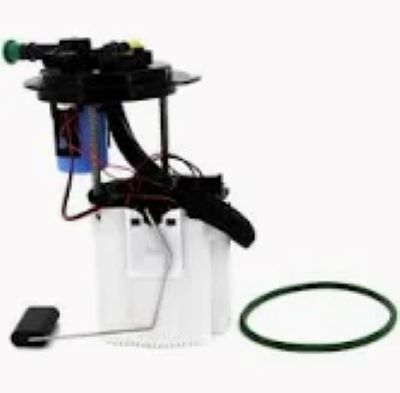There are fundamental differences between a mechanical fuel pump and its electric counterparts, basically in function, design, and suitable application. Opposed to electric fuel pumps depending on the 12-volt electrical system to maintain steady pressure, mechanical pumps use power from the engine to pump fuel to the carburetor. These pumps are camshaft-driven and use a diaphragm that moves in and out as the engine runs, creating a low-pressure fuel flow between 4 to 10 psi. This pressure suits carbureted engines that don't require high fuel pressure for optimal performance-a contrast to the modern fuel-injected engines where pressures of 40 to 60 psi are common.
Generally, in mechanical pumps, the design is simpler and does not involve any electric power connections, which makes them not so complicated and often more durable in classic or low-tech engine constructions. However, such a construction allows neither high-performance nor fuel-injected engines because of limitations of the pressure control and flow control. That is why they are used in older cars or motorcycles where, in general, reliability and simplicity are put above high effectiveness and power of electric pumps.

One of the main differences is in maintenance. Mechanical pumps have fewer electronics, and thus they usually have fewer electrical failures. However, they are based on diaphragms and seals that with time could deteriorate, especially if low-quality fuel or contaminants get inside the system. These should be replaced regularly to maintain efficiency, and the average lifetime of mechanical fuel pumps is a bit shorter than that of modern pumps; many are replaced around 60,000 to 80,000 miles.
These cannot be used on high-performance, mechanically injected fuel pumps due to their low pressure output. It requires an electric Fuel Pump for those engines which require high pressure and precise delivery of fuel. Carroll Shelby once said, "Horsepower sells cars, but torque wins races," a reason well justified by employing a reliable and efficient high-performance accessory in modern cars. The mechanical fuel pumps are durable and simple for carbureted engines; however, they cannot meet the demand of these high-pressure systems, which draws a line between fuel pump types and their application.